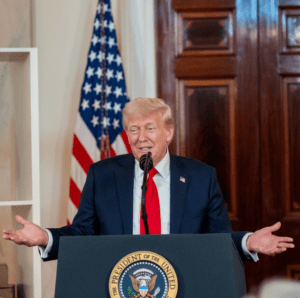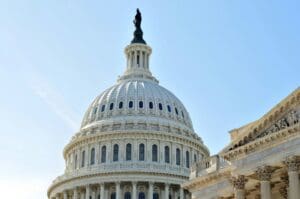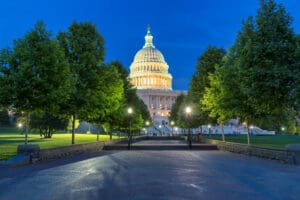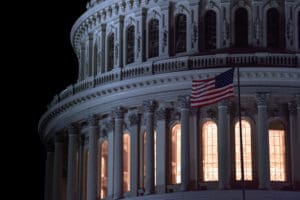The economic crisis caused by the coronavirus pandemic poses a triple challenge for tax policy in the United States. Lawmakers are tasked with crafting a policy response that will accelerate the economic recovery, reduce the mounting deficit, and protect the most vulnerable.
To assist lawmakers in navigating the challenge, and to help the American public understand the tax changes being proposed, the Tax Foundation’s Center for Federal Tax Policy modeled how 70 potential changes to the tax code would affect the U.S. economy, distribution of the tax burden, and federal revenue.
In tax policy there is an ever-present trade-off among how much revenue a tax will raise, who bears the burden of a tax, and what impact a tax will have on economic growth. Armed with the information in our new book, Options for Reforming America’s Tax Code 2.0, policymakers can debate the relative merits and trade-offs of each option to improve the tax code in a post-pandemic world.

‘Trump Accounts’ Could Be Better. Here’s How.
If the federal government really wanted to make saving more accessible for taxpayers, it would swap the proposal for Trump Accounts to replace the complicated mess of savings accounts currently available with universal savings accounts.
4 min read
How the IRA Provisions (and Scores) Have Changed
The final House bill makes impressive cuts to the IRA green energy tax credits, but it does so in part by introducing more complexity.
5 min read
How Does the House-Passed Tax Bill Change the Section 199A Pass-Through Deduction?
Rather than permanently expanding a complicated, nonneutral tax break, Congress should prioritize permanence for the most neutral and pro-growth policies like bonus depreciation and R&D expensing.
6 min read
The Remittances Tax: High Paperwork, Low Payoff
The House-passed “One Big Beautiful Bill” includes a new 3.5 percent tax on remittances, or non-commercial transfers of money that people in the US send to people abroad.
7 min read
House Tax and Spending Bill Continues Income Tax Carveout for Credit Unions
The House tax and spending bill leaves in place a long-standing provision that exempts credit unions from federal and state income tax, allowing them to compete unfairly with banks and, increasingly, to buy them.
6 min read
Congressional Tax Writers and Scorekeepers You Should Know
When you hear about tax policy, you may think of the IRS, the agency responsible for collecting federal taxes. But who is responsible for drafting, reviewing, assessing, and passing tax legislation at the federal level?
4 min read
Fiscal Forum: Future of the EU Tax Mix with Dr. Dominika Langenmayr
Tax Foundation Europe’s Sean Bray had the opportunity to interview Dr. Dominika Langenmayr, Professor of Economics at Catholic University of Eichstätt-Ingolstadt, about the future of the EU tax mix.
15 min read
Ohio Should Wean Off Cigarette Tax Revenue and Pursue Healthier Fiscal Policy
Instead of doubling down on a shrinking tax base, Ohio lawmakers should instead look towards tax solutions that secure the state’s long-term fiscal health.
4 min read
Presidential Election in Poland: Tailoring Tax Policy to Poland’s Strategic Needs
Between Russia’s war in Ukraine, President Trump’s uncertain policies towards Europe, and Poland’s attempt to increase domestic defense capabilities, raising revenue has become one of the most critical topics in the campaign.
7 min read
Making the Corporate Alternative Minimum Tax Less Silly
The House reconciliation bill includes numerous changes to the tax code: good, bad, and ugly. However, the new corporate alternative minimum tax, or CAMT, goes largely untouched.
4 min read